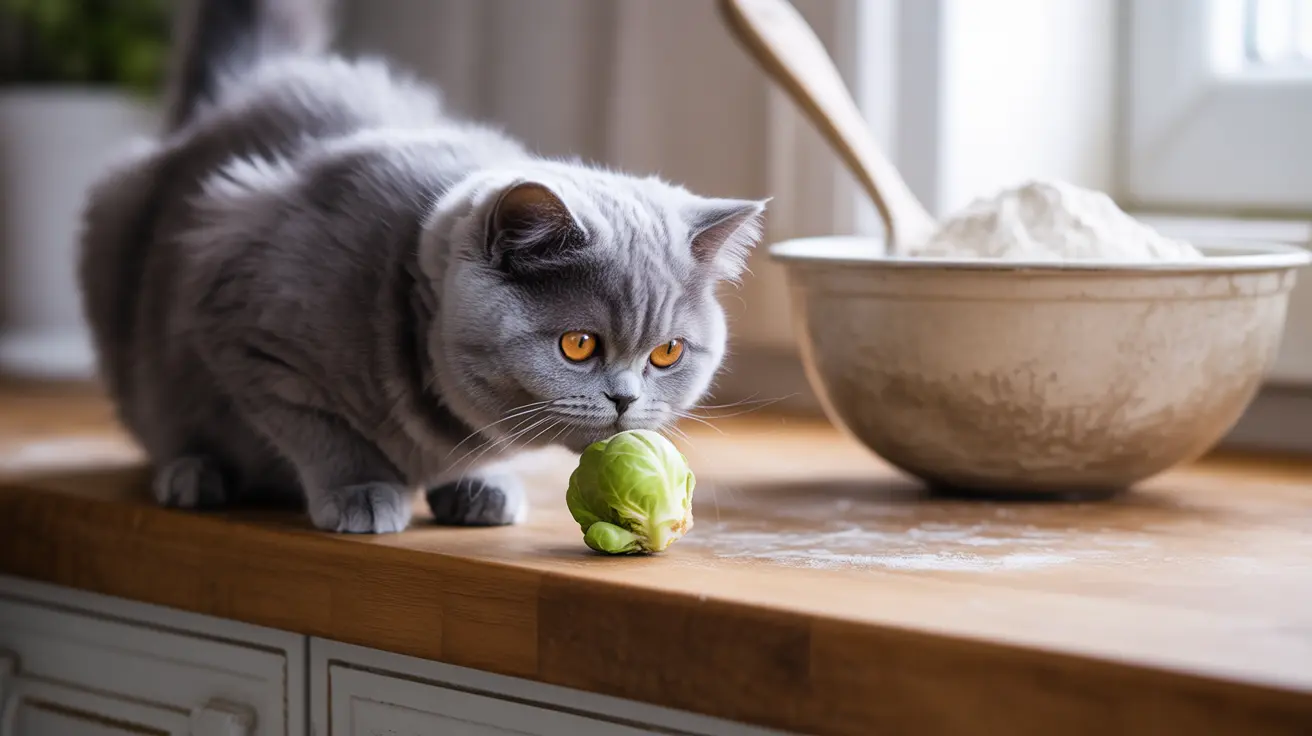Nutritional Benefits of Brussels Sprouts for Cats
While cats don't require vegetables in their diet, Brussels sprouts do offer some nutritional benefits when served as an occasional treat:
- Vitamins K, C, and A support immune health
- Dietary fiber aids digestion
- Low-calorie content helps with weight management
- Antioxidants support overall health
- Potassium and folate provide minor nutritional benefits
Safety Precautions and Preparation Methods
Before offering Brussels sprouts to your cat, proper preparation is essential:
Cooking Requirements
Always cook Brussels sprouts thoroughly by steaming or boiling. Never serve them raw to avoid bacterial contamination risks.
Proper Serving Size
Start with no more than ½ teaspoon of cooked, finely chopped Brussels sprouts. Monitor your cat's reaction before potentially increasing to 1 teaspoon maximum.
Safe Preparation Steps
- Wash thoroughly to remove pesticides
- Remove outer leaves and stems
- Cut into small, bite-sized pieces
- Cook without seasonings, oils, or additives
- Allow to cool completely before serving
Potential Risks and Warning Signs
While Brussels sprouts are non-toxic to cats, there are several risks to consider:
- Digestive upset including gas and bloating
- Possible choking hazard if not properly cut
- Risk of diarrhea or vomiting
- Potential allergic reactions
- Interference with regular feeding habits
When to Avoid Brussels Sprouts
Some cats should not be given Brussels sprouts, including:
- Kittens with developing digestive systems
- Cats with sensitive stomachs or existing GI issues
- Pets with known vegetable allergies
- Cats on specialized diets for medical conditions
Frequently Asked Questions
Can cats safely eat Brussels sprouts, and how should they be prepared?
Yes, cats can safely eat Brussels sprouts when they're thoroughly cooked, cut into small pieces, and served plain without seasonings. Always steam or boil them and serve in small portions of ½ to 1 teaspoon maximum.
What are the health benefits of feeding Brussels sprouts to cats in moderation?
Brussels sprouts provide fiber, vitamins K, C, and A, and antioxidants that can support digestive health and immune function. However, these benefits are minor compared to the nutrients cats receive from their regular meat-based diet.
Are there any risks or side effects if my cat eats too many Brussels sprouts?
Yes, overconsumption can lead to digestive issues including gas, bloating, diarrhea, and vomiting. Excessive fiber intake can also interfere with regular nutrient absorption.
Why should cats never be given raw Brussels sprouts?
Raw Brussels sprouts pose risks of bacterial contamination and are harder to digest. They can cause food poisoning and severe digestive upset in cats.
Can kittens eat Brussels sprouts, or are they only suitable for adult cats?
Kittens should not eat Brussels sprouts as their digestive systems are still developing. They need to focus on nutrient-dense, meat-based foods for proper growth and development.
Conclusion
While cats can safely consume properly prepared Brussels sprouts in moderation, they should only be offered as an occasional treat. Remember that your cat's primary nutrition should come from high-quality, meat-based cat food. If you decide to introduce Brussels sprouts, do so gradually and watch for any adverse reactions. When in doubt, always consult with your veterinarian before adding new foods to your cat's diet.






